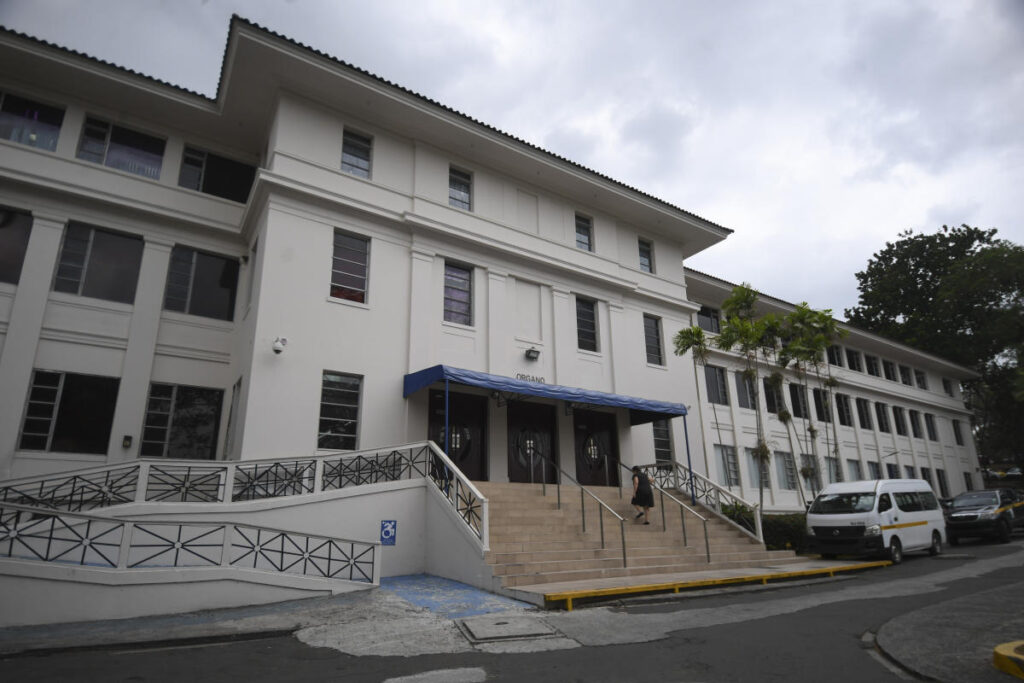PANAMA CITY (AP) — Eight years after 11 million secret financial documents were leaked, revealing how some of the world's richest people hide their wealth, 20 people in Panama have been arrested. The above defendants are on trial for their roles.
The leak's impact was far-reaching, prompting the resignation of Iceland's prime minister and bringing scrutiny to the then-leaders of Argentina and Ukraine, Chinese politicians and Russian President Vladimir Putin, among others.
But the people currently on trial on money laundering charges are primarily the leaders of a now-defunct Panamanian boutique law firm that helped set up shell companies that were used to hide those really behind the money. and his friends.
The company's leaders, Jurgen Mossack and Ramon Fonseca, are among those on trial.
What is the Panama Papers incident?
Panama prosecutors say Mossack, Fonseca and their associates ran a web of offshore companies that used complex transactions to hide funds related to illegal activities in the Brazilian construction giant Odebrecht's “car wash” corruption scandal. claims to have created it.
In December 2016, Mr. Odebrecht pleaded guilty in U.S. federal court to charges related to the use of shell companies to disguise hundreds of millions of dollars in bribes paid around the world to win public contracts. Ta.
According to Panama prosecutors, the Mossack Fonseca company set up 44 shell companies, 31 of which opened accounts in Panama to hide funds related to the Brazil scandal. Judge Baloissa Marquines, who presided over the case, also decided last year to combine Odebrecht-related charges with prosecutors' claims that the company worked for German giant Siemens. Prosecutors allege that the company's former executives used an entity set up by Mossack Fonseca to transfer bribe funds.
A Siemens spokesperson declined to comment, noting that the company is not a party to the Panama incident and that former Siemens employees are involved in their personal capacity.
What do Mossack and Fonseca say?
Mr Fonseca, 71, did not attend the trial as his lawyer said he was hospitalized. But he has previously said he does not control how customers use the shell companies his company sets up for them. His role was simply to start and sell companies.
Mossack, a 76-year-old lawyer from Germany, said in a statement to The Associated Press: “We categorically deny that we, not Mossack Fonseca or its subsidiaries, committed any crime…and that this will be proven in court. I hope.'' . If there is actually justice in our case, they must pardon us. ”
Both men were arrested in 2017 and were held on bond awaiting trial.
What happened to the company?
Over its 40 years in business, Mossack Fonseca has helped create and sell approximately 240,000 shell companies. It announced its closure in March 2018, two years after the scandal broke.
“The negative reputation, media campaign, financial siege, and erratic actions of some Panamanian authorities have caused irreparable damage, resulting in a complete suspension of public operations,” the company said in a statement at the time. It happened,” he said.
How did the scandal affect Panama?
Panama's international reputation for financial services has been tarnished by the scandal.
The European Union has included Panama in its list of tax haven countries, citing low tax rates or fiscal opacity, prompting international financial institutions to demand the introduction of measures to enable oversight of banking and financial systems. .
As a result, the country's business setting up shell companies plummeted by about 40% within a year of the scandal.
What changes has Panama made?
The Panamanian government has implemented changes to allow limited liability companies and the ultimate beneficial owners of their assets to be identified.
It also called for greater responsibility to be given to the shell company's registered agent, usually a lawyer in the Panama office.
The purpose was to allow Panamanian authorities to respond to requests for investigative assistance.
Panamanian financial expert Julio Aguirre said the government wants registered agents to actually monitor companies. Previously, “the law didn't require follow-up, and there was no legal obligation,” he says.
Banks have also traditionally been limited in their ability to know who is really behind an account. “They gave the banks the means to get that information,” Aguirre said.


